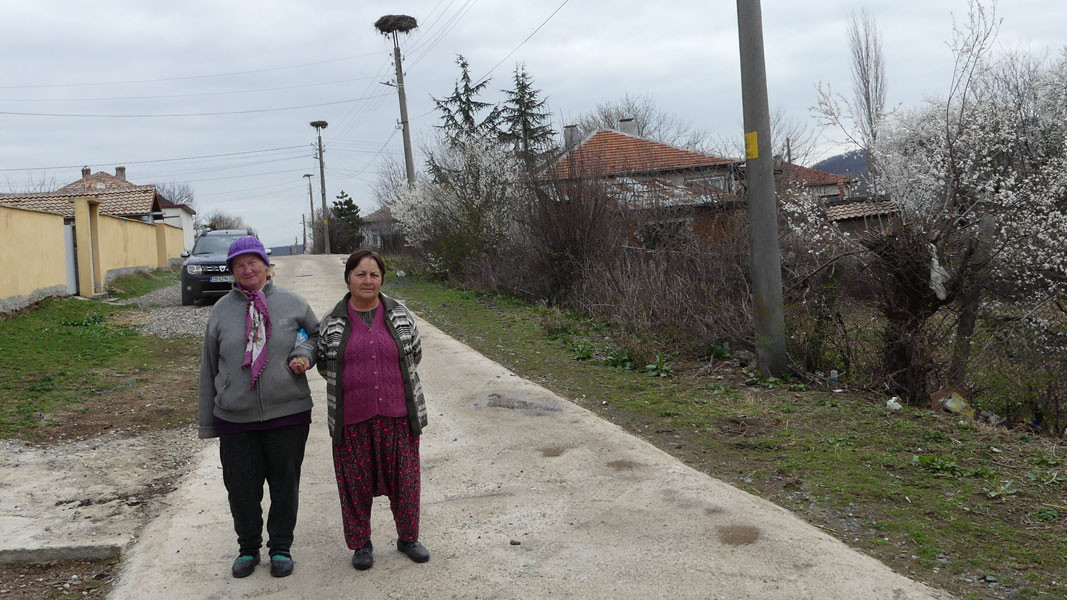There is a village in the Eastern Rhodopes (southern Bulgaria), which locals claim is the village with the biggest number of storks in this country. Whether this is so has not been conclusively proven, but the first representatives of the species White Stork (Lat. Ciconia ciconia) have already arrived and started preparing the nests for their future generation.
The village of Zvinitsa, named after the second son of Bulgarian ruler Khan Omurtag (814-831), is located a semi-mountainous region and has long been famous for its large population of storks. 280 is the largest number ever reported by ornithologists there. There are 68 stork nests in the village and the local community take special care of them. Reporter Bozhidar Cholakov from BNR-Radio Kardzhali talked with Mayor Niyazi Veli and residents of Zvinitsa.

"These are the first storks," says Niyazi Veli. “And they remind us that spring is coming. The males come first to prepare the nest and if necessary to repair it. Only then do the females arrive. The storks hatched last year are coming to the nest in which they grew up. But when it's taken, they find another place to stay. See how many nests there are. I remember when I was a student about fifty years ago, there was an elm and only one nest on it. Over time, the population of storks has grown. In fact, they prefer places like this – with fertile soil and water reservoirs, as they can find food. Interestingly, there are fewer storks in the neighboring villages."
People in Zvinitsa perceive the storks as a symbol of luck. They also claim that the storks protect the village from natural disasters and cataclysms. People love the storks and each of them is waiting for the one who nests near their house. "Birds understand this love and respond in the same way," Mayor Niyazi Veli says.

"Here, they live close to people. They see that our attitude towards them is humane and they trust us. Almost every year we happen to find a fallen baby stork. Then we call the Green Balkans organization and with the help of the Regional Health Inspectorate in Haskovo we transport the bird to the Wildlife Center in Stara Zagora, where they take care of it. We had a stork a few years ago that had been standing in our yard all summer. It had a broken wing. However, when the others took off, he began to get restless and one day he escaped from the yard. We found him outside the village and the Green Balkans took care of the bird.”
Each electric pole in the village of Zvinitsa has a stork nest on it. Last year, the mayor, together with the electricity distribution company, built platforms on the poles, so that the storks can make stable nests easily.

"We are glad to see them coming," says Hatice of Zvinitsa. "They bring us luck. No hail falls in the village. They protect us from natural disasters."
People and storks will live together in the village until mid or late August, when the beautiful birds will gather in the nearby fields and start their flight to warmer countries, and the residents of Zvinitsa will be expecting them next spring.
English: Alexander Markov
Photos: Bozhidar CholakovAs a rescue center for wild animals, this year too, the Sofia Zoo sheltered deer injured in accidents, storks that cannot fly and even a Nile crocodile . Among the animals housed are also confiscated valuable exotic birds such as pink flamingos and pink..
Non-governmental organizations are cleaning two of the beaches on the Southern Bulgarian Black Sea Coast. The Clean Christmas campaign under the motto "A Clean Home for the Inhabitants of the Black Sea" is being organized for the seventh..
Sofia City Hall is planning a light show instead of fireworks for the New Year's celebrations, it's press office announced. The show, which will be part of the programme of the New Year's Concert at Knyaz Alexander I Square, will be designed with..

+359 2 9336 661
